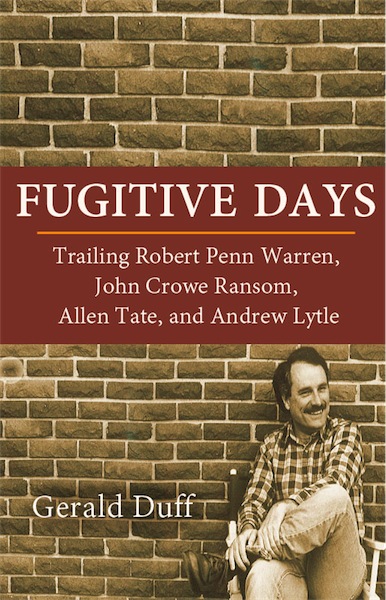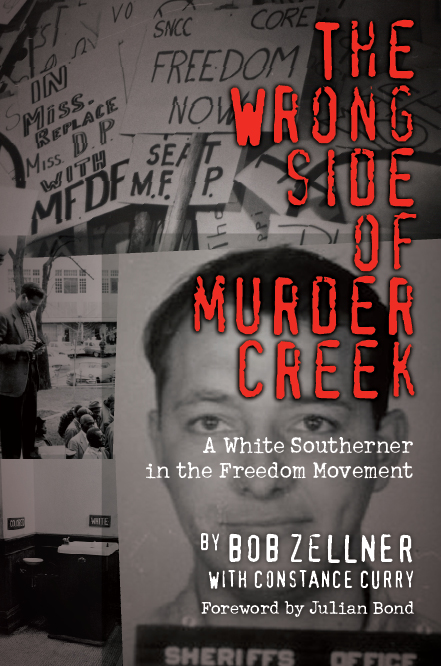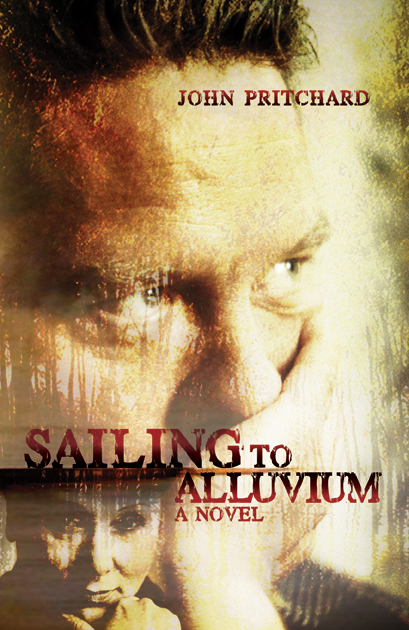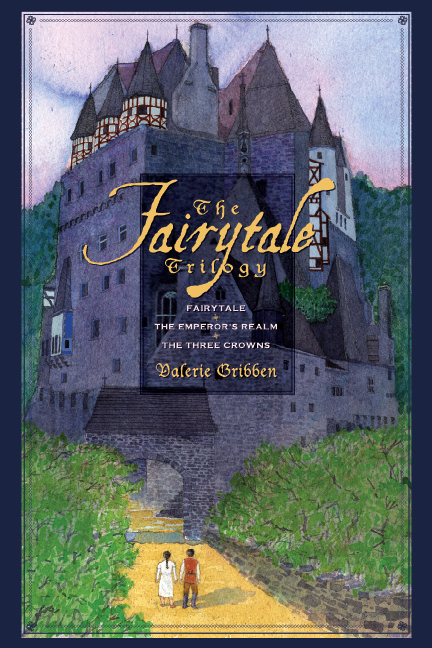“Witty, Wry”: Gerald Duff’s Fugitive Days reviewed by Southern Literary Review, Chapter 16
Monday, August 26th, 2013 by Brian Seidman Chapter 16 calls writer and professor Gerald Duff’s new short ebook Fugitive Days “a witty insight into the real lives” of some notable poets, and the Southern Literary Review calls Fugitive Days “a wry contribution to the growing literature of writers’ encounters with writers.”
Chapter 16 calls writer and professor Gerald Duff’s new short ebook Fugitive Days “a witty insight into the real lives” of some notable poets, and the Southern Literary Review calls Fugitive Days “a wry contribution to the growing literature of writers’ encounters with writers.”
In Fugitive Days, Duff recounts his personal encounters with Vanderbilt University’s Fugitive poets, including Robert Penn Warren, John Crowe Ransom, Allen Tate, Donald Davidson, and Andrew Lytle. As reviewer Ed Tarkington writes in Chapter 16, an online publication from Humanities Tennessee:
Some of these sketches seem intent on demystifying their subjects. We see Robert Penn Warren smearing butter on a dinner roll, musing on how one can detect from the butter’s taste what the cow last ate before the cream was produced, Allen Tate conferring with his young colleague about how best to engage Vanderbilt undergraduates in Wordsworth’s “Preface to Lyrical Ballads,” Andrew Lytle reciting a dubious anecdote about a visit to his New York publishing house, etc. The subtext, however, is the journey of [Duff,] a new-minted scholar as he finds his way, eager to spend any moment he can in the company of his heroes. …
In one anecdote, Duff arrives early at Ransom’s home to drive Warren to the airport, hoping to steal a few extra minutes in the company of both great men. On a different occasion, driving down Thompson Lane with Lytle in the passenger seat, he slows the car so as not to arrive at his destination before Lytle finishes telling his story.
In the Southern Literary Review, reviewer David Madden observes that “some of [Duff’s] encounters were learning experiences, some were sad, some were disillusioning. Long relationships with such writers often diminish the anecdotal impact, while brief ones are often so vivid, the memory lingers over many years, as did Duff’s, and one finally scratches the itch to tell waiting listeners about them.”
Madden concludes that “Duff is a very witty, vivid writer, whose essay will inspire … other writers to come forward with their repertoire of encounters with literary heroes.” Tarkington notes that “the final effect of [Fugitive Days] is to emphasize Duff’s heartfelt reverence for a group of men who revolutionized the practice of both poetry and literary criticism, and who brought to the South the artistic and intellectual credibility that paved the way for Faulkner, Welty, O’Connor, and their heirs.”
Read David Madden’s review at the Southern Literary Review website. Read “All the Fugitives’ Men” from Chapter 16.
Gerald Duff’s Fugitive Days is available for just $0.99 for Kindle, Nook, iPad, or your favorite ebook device. Duff’s novel Coasters and his short story collection Fire Ants are also available in hardcover and ebook.

 TIME Magazine has included author and civil rights activist Bob Zellner as part of their
TIME Magazine has included author and civil rights activist Bob Zellner as part of their  John Pritchard’s new novel
John Pritchard’s new novel  Almost fifty years later, recalling the abuses in the Alabama juvenile justice system that Denny Abbott discovered and worked to end still touches him “very deeply,” Abbott told the
Almost fifty years later, recalling the abuses in the Alabama juvenile justice system that Denny Abbott discovered and worked to end still touches him “very deeply,” Abbott told the  Valerie Gribben, author of a popular work of young adult fiction called Fairytale, published by NewSouth Books when Gribben was just 16 (and newly expanded into the
Valerie Gribben, author of a popular work of young adult fiction called Fairytale, published by NewSouth Books when Gribben was just 16 (and newly expanded into the 
